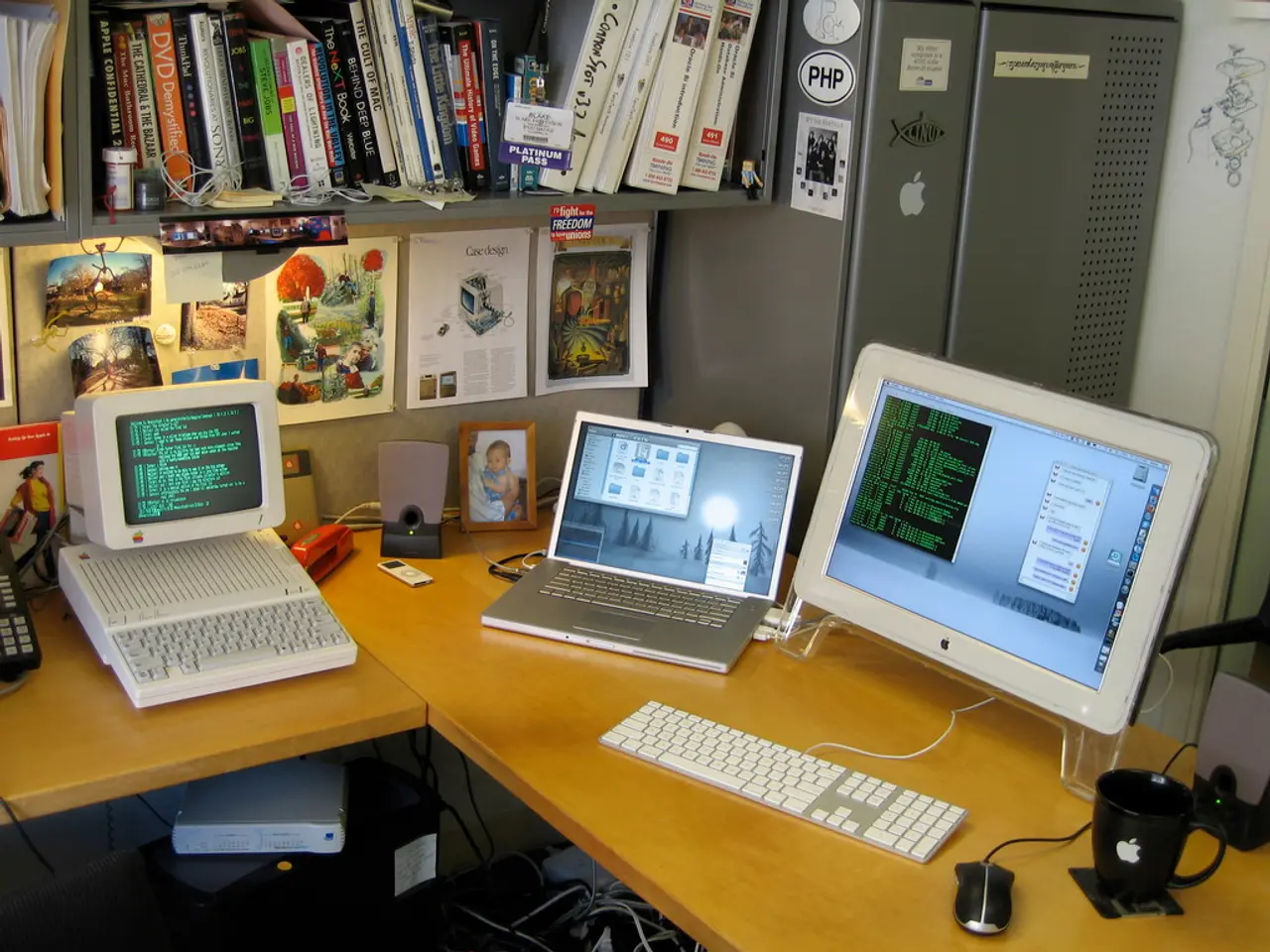Tesla under Elon Musk secures a $16.5 billion deal with Samsung for the provision of chips essential for autonomous driving technology and artificial intelligence.
In a significant move, Tesla has entered into a $16.5 billion supply agreement with Samsung Electronics for the production of custom autonomous driving and AI chips [1][2]. This deal, spread over multiple years, marks a strategic partnership between the two companies and is a significant order for Samsung's foundry business, which aims to capture more of the high-performance compute market, particularly in sectors like automotive and data center AI.
The chips will be manufactured using Samsung's 4nm process, a technology designed for power-efficient, high-density applications. Production is planned to start in late 2025 or early 2026 at Samsung’s foundries in Taylor, Texas, and Hwaseong, South Korea [1][2].
These chips are specifically designed for Tesla’s Full Self-Driving (FSD) systems in vehicles and also for backend AI training infrastructure such as Tesla’s Dojo supercomputer. Key technologies and features of these chips include:
- Use of Samsung’s cutting-edge 4nm fabrication node, delivering high-performance compute capabilities with improved power efficiency.
- Designed to meet stringent automotive-grade reliability for in-vehicle autonomous driving functions.
- High throughput and low latency characteristics suitable both for real-time driving decisions and large-scale AI model training.
- Integration into Tesla’s next-generation A16 chip architecture, indicating these chips are likely successors to Tesla’s current AI processors, optimized for complex neural network workloads [1][3][4].
The deal strengthens Tesla's supply chain for AI and FSD chips, and for Samsung, it marks a major expansion into the automotive AI chip market and reinforces its foundry business with a key U.S. customer [1][2].
The Taylor, Texas facility will be critical in this deal, as it represents a major investment in domestic semiconductor production. The line between car companies and technology firms continues to blur, particularly for those pursuing autonomous driving and AI development at scale.
It's worth noting that the deal is non-exclusive, allowing Tesla to continue working with other suppliers, including TSMC, as needed. The agreement underscores the growing importance of semiconductors in the future of transportation, and the $16.5 billion deal between Tesla and Samsung is a testament to this trend.
[1] https://www.tesla.com/news/tesla-announces-16-5-billion-supply-agreement-with-samsung-electronics-for-autonomous-driving-and-ai-chips [2] https://www.samsung.com/global/business/semiconductor/foundry/news/2023/samsung-electronics-to-supply-tesla-with-custom-ai-chips-using-4nm-process/ [3] https://www.tesla.com/autopilot [4] https://www.tesla.com/dojo-supercomputer
- This strategic partnership between Tesla and Samsung Electronics, valued at $16.5 billion, not only reinforces Samsung's foundry business but also strengthens Tesla's supply chain for AI and Full Self-Driving (FSD) chips, highlighting the intersection of transportation and technology.
- The production of custom AI chips for Tesla's FSD systems, to be manufactured using Samsung's 4nm process, will involve logistics and transportation, as these chips will be produced at Samsung’s foundries in Taylor, Texas, and Hwaseong, South Korea, with plans to start in late 2025 or early 2026.
- This significant order for Samsung's foundry business is part of a broader business strategy to capture more of the high-performance compute market, particularly in sectors like automotive and data center AI, requiring careful financial planning and expertise in technology and logistics.




